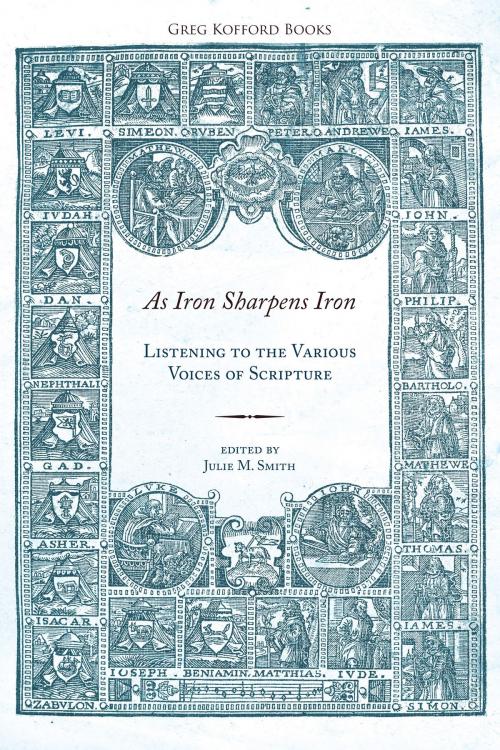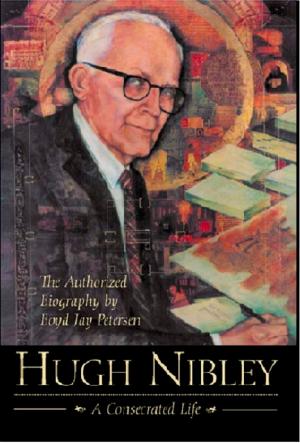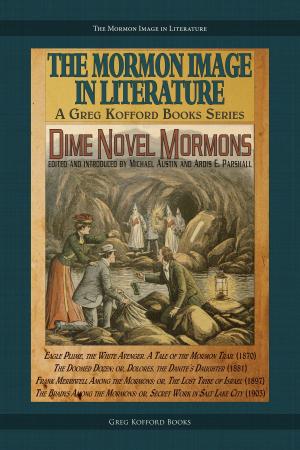As Iron Sharpens Iron: Listening to the Various Voices of Scripture
Nonfiction, Religion & Spirituality, Christianity, Denominations, Mormonism, Bible & Bible Studies, Criticism & Interpretation| Author: | Julie M. Smith | ISBN: | 1230001225112 |
| Publisher: | Greg Kofford Books | Publication: | August 2, 2016 |
| Imprint: | Language: | English |
| Author: | Julie M. Smith |
| ISBN: | 1230001225112 |
| Publisher: | Greg Kofford Books |
| Publication: | August 2, 2016 |
| Imprint: | |
| Language: | English |
Our scripture study and reading often assume that the prophetic figures within the texts are in complete agreement with each other. Because of this we can fail to recognize that those authors and personalities frequently have different—and sometimes competing—views on some of the most important doctrines of the Gospel, including the nature of God, the roles of scripture and prophecy, and the Atonement.
In this unique volume, fictionalized dialogues between the various voices of scripture illustrate how these differences and disagreements are not flaws of the texts but are rather essential features of the canon. These creative dialogues include Abraham and Job debating the utility of suffering and our submission to God, Alma and Abinidi disagreeing on the place of justice in the Atonement, and the authors Mark and Luke discussing the role of women in Jesus’s ministry. It is by examining and embracing the different perspectives within the canon that readers are able to discover just how rich and invigorating the scriptures can be. The dialogues within this volume show how just as “iron sharpeneth iron,” so can we sharpen our own thoughts and beliefs as we engage not just the various voices in the scriptures but also the various voices within our community (Proverbs 27:17).
Praise for As Iron Sharpens Iron:
“A model for a new, Jewish-informed way of reading scriptures with rich potential for Latter-day Saint audiences. One that embraces complexity rather than fleeing from it; an approach that values nuance and richness over simplicity and closure. Highly recommended.” — Fiona Givens, co-author of The Crucible of Doubt: Reflections On the Quest for Faith and The God Who Weeps: How Mormonism Makes Sense of Life
Our scripture study and reading often assume that the prophetic figures within the texts are in complete agreement with each other. Because of this we can fail to recognize that those authors and personalities frequently have different—and sometimes competing—views on some of the most important doctrines of the Gospel, including the nature of God, the roles of scripture and prophecy, and the Atonement.
In this unique volume, fictionalized dialogues between the various voices of scripture illustrate how these differences and disagreements are not flaws of the texts but are rather essential features of the canon. These creative dialogues include Abraham and Job debating the utility of suffering and our submission to God, Alma and Abinidi disagreeing on the place of justice in the Atonement, and the authors Mark and Luke discussing the role of women in Jesus’s ministry. It is by examining and embracing the different perspectives within the canon that readers are able to discover just how rich and invigorating the scriptures can be. The dialogues within this volume show how just as “iron sharpeneth iron,” so can we sharpen our own thoughts and beliefs as we engage not just the various voices in the scriptures but also the various voices within our community (Proverbs 27:17).
Praise for As Iron Sharpens Iron:
“A model for a new, Jewish-informed way of reading scriptures with rich potential for Latter-day Saint audiences. One that embraces complexity rather than fleeing from it; an approach that values nuance and richness over simplicity and closure. Highly recommended.” — Fiona Givens, co-author of The Crucible of Doubt: Reflections On the Quest for Faith and The God Who Weeps: How Mormonism Makes Sense of Life















